
Imaging tools play a crucial role in diagnosis, establishing treatment efficacy, and follow-ups to monitor the recurrence, in particular when dealing with malignant disease. Various ionizing and non-ionizing imaging tools are used for diagnosing and follow-ups of patients where Mammography, CT scan, PET-CT and fluoroscopy-guided interventional procedures have ionizing effects.
Radiation from diagnostic imaging modalities, such as computed tomography, mammography, and nuclear imaging, are minor contributors to the cumulative dose compared to fluoroscopic-based imaging tools used for interventional procedures. However, any radiation exposure must be avoided because it could be dangerous for patients and medical personnel alike.
Radiation safety is a major concern for patients as well as healthcare workers. Minimizing Radiation is to provide an appropriate level of protection for patients against the harmful effects of radiation without unduly limiting its usefulness. This will prevent the occurrence of harmful deterministic effects (e.g. direct harmful effects) and stochastic effects (e.g. cancer and genetics effects).
Clinical significance
It is essential to have a fundamental knowledge of how radiation can cause harm before developing various approaches to safeguard both patients and medical personnel. The risks of radiation are dose-dependent and cumulative. The most commonly accepted hypothesis is the linear no-threshold model, which assumes that the long-term, biological damage caused by ionizing radiation is directly proportional to the cumulative radiation dose.
This story is from the {{IssueName}} edition of {{MagazineName}}.
Start your 7-day Magzter GOLD free trial to access thousands of curated premium stories, and 9,000+ magazines and newspapers.
Already a subscriber ? Sign In
This story is from the {{IssueName}} edition of {{MagazineName}}.
Start your 7-day Magzter GOLD free trial to access thousands of curated premium stories, and 9,000+ magazines and newspapers.
Already a subscriber? Sign In
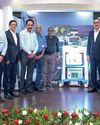
KIMSHEALTH launches electrophysiology lab with 3D mapping
'ENSITE X' is the first of its kind in Kerala and the third in India enabling precise identification, mapping, and targeting the abnormal electrical activities in the heart.
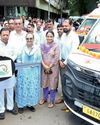
Molbio boosts Goa's healthcare system with CSR initiatives
The company has donated four state-of-the-art Advanced Life Support (ALS) ambulances and two hearse vans for National Highway emergencies
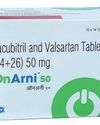
USV introduces affordable heart failure medication
This cost-effective option addresses the rising cases of heart failure in India, offering lifesaving care to millions of patients who need it the most.
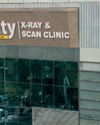
City Imaging & Clinical Labs to expand services to 50 hospitals
The company is currently associated with 10 hospitals, providing comprehensive lab management services, including 24/7 in-house phlebotomy and lab testing.

Oncare raises $1 million in seed funding, to set up 10 units
Oncare has raised $1 million in a seed funding round led by Huddle Ventures. It plans to deploy the raised capital to expand its operations to 10 new centers.

Nutrabay forays into Ayurvedic supplements market with Shilajit
Nutrabay's aims at gaining market share from the existing ayurveda supplements market with a distinctive product proposition and education about the benefits of Shilajit.
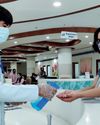
INDIA'S PREPAREDNESS ON HEALTHCARE-ASSOCIATED INFECTIONS: A GROWING FOCUS ON PATIENT SAFETY
The country's diverse healthcare landscape necessitates a flexible and multifaceted approach to infection control that can be adapted to various settings and resource levels.

TRANSFORMING CARDIAC SURGERY: HOW AI IS REVOLUTIONIZING PATIENT CARE AND OUTCOMES
Dr. Swarup Swaraj Pal shared his insights on the current state and future prospects of AI in cardiac procedures.

BEYOND THE LAB: THE CRITICAL ROLE OF LOGISTICS IN INDIA'S PHARMACEUTICAL INDUSTRY
As India continues to expand its role in the global pharmaceutical market, the importance of a robust, reliable, and innovative logistics infrastructure cannot be overstated.

LIFESTYLE DISEASES IN CHILDREN: A WAKE-UP CALL FOR A HEALTHIER GENERATION
In today's fast-paced world, children face an unexpected enemy: lifestyle diseases. Conditions like obesity, Type 2 diabetes, and hypertension are now affecting our youth. What's causing this shift, and how can we combat it?